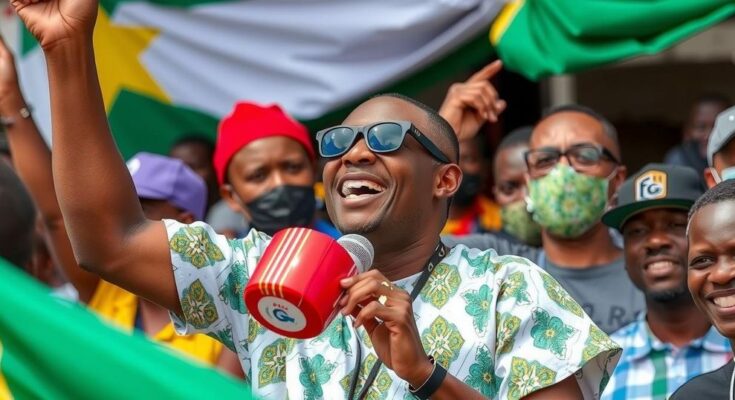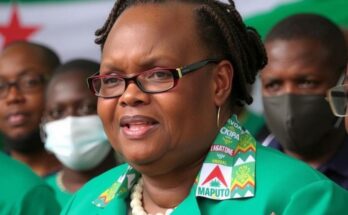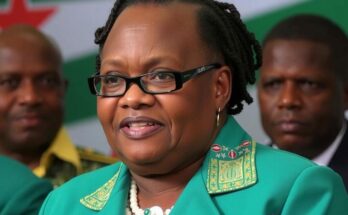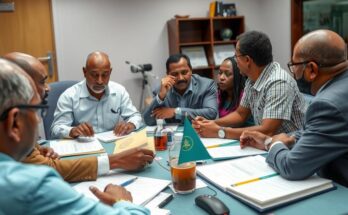Ghana’s opposition claims victory for John Mahama in the presidential elections based on provisional results, amid ongoing tallying by electoral authorities. Economic struggles dominated the campaign, with Mahama attracting voter support for change against incumbent Vice President Bawumia. Official results are expected soon, while some violence marred the election process.
In a recent pronouncement, Ghana’s opposition party, the National Democratic Congress (NDC), has declared its candidate, John Mahama, as the victor of the presidential elections held over the weekend, based on provisional results. However, the Electoral Commission has indicated that official results are still being compiled. The election was primarily a contest between Mr. Mahama and Vice President Mahamudu Bawumia of the ruling New Patriotic Party (NPP), amidst significant public dissatisfaction stemming from economic challenges. Voter dissatisfaction related to the economy dominated discussions, especially given Ghana’s experience of debt defaults and inflation, which necessitated a $3 billion International Monetary Fund (IMF) bailout.
As voters anticipated the successor to President Nana Akufo-Addo, who has reached the end of his second term, they also participated in the parliamentary elections. NDC representative Sammy Gyamfi reported that their internal estimates suggest Mr. Mahama secured approximately 56.3 percent of the votes, compared to Mr. Bawumia’s 41.3 percent, pointing to a clear call for change from the electorate. According to local broadcaster ChannelOne TV, preliminary counts from 42 out of 276 constituencies also indicated Mr. Mahama’s lead over his opponent. Nevertheless, the Election Commission Deputy Commissioner, Bossman Asare, confirmed that the collation process is still ongoing, and official results are expected by Tuesday.
Despite a generally peaceful voting process, there were incidents of violence resulting in casualties in the northern and central regions of the country, emphasizing the complex social dynamics during elections. Ghana has a rich history of democratic elections; since 1992, the NPP and NDC have alternated leadership, fostering a competitive political environment. Bawumia, utilizing the campaign slogan “Break the 8,” aimed for a historic third consecutive term for the NPP, yet found it challenging to detach from dissatisfaction related to the current administration’s economic management. Despite signs of economic recovery, including a reduction in inflation rates, public frustration persists, providing a significant opportunity for Mr. Mahama, who previously served as president from 2012 to 2017, to re-establish his presence in Ghanaian politics after previous electoral defeats.
The political landscape in Ghana has been characterized by a strong tradition of democracy, where power has alternated between the two primary political parties, the National Democratic Congress (NDC) and the New Patriotic Party (NPP), since the introduction of multi-party governance in 1992. The recent presidential election was significantly influenced by the country’s economic hardships, marked by high inflation and a debt crisis that led to an IMF bailout. As the country approached this election, voters were keenly aware of these economic issues, making them pivotal points for candidates vying for leadership.
In summary, the recent presidential election in Ghana has revealed significant political dynamics, with the opposition claiming victory amidst a backdrop of economic discontent. While early reports suggest a potential win for John Mahama, the official results are pending. The circumstances underscore the critical role economic issues play in shaping electoral outcomes in Ghana, as parties navigate the challenges posed by public dissatisfaction with government performance.
Original Source: www.france24.com




